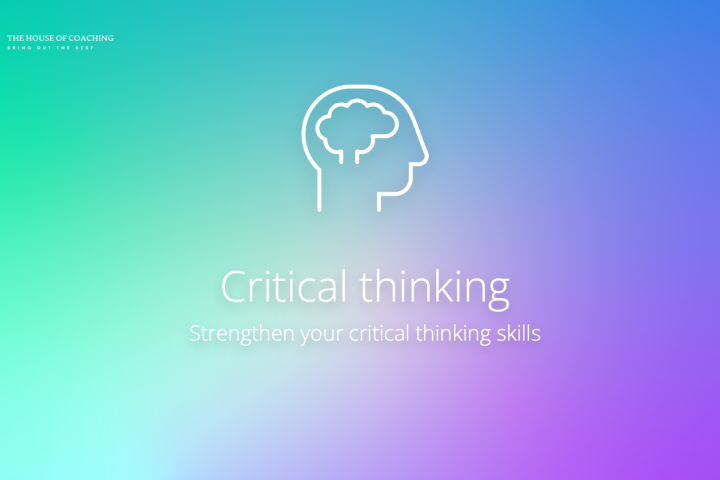Critical thinking
Do you make a lot of assumptions and can't see clarity in your thinking? Are you sometimes stuck in thinking circles? Do you find it difficult to build an argument? Do you sometimes block when you need to challenge a certain line of thought? How do you know when you reflect and evaluate correctly?
Learning objectives
After this training, participants will be able to:
- Evaluate ideas and problems in an objective way.
- Easily identify 'critical points' for failure or success.
- Intercept thinking errors.
- Engage in more constructive dialogue with teammates.
- Make better decisions.
This training programme consists of 4 half-day modules. In each module, we first bring the general framework. Then we put the principles and techniques into practice and the participants work through examples and cases that fit their own work situation.
Programme
Day 1: Becoming aware of own critical thinking skills
1. The critical thinking process:
- Definition of critical thinking.
- Epistemology and meta-cognition (reflection on own thinking).
- Understanding the brain: characteristics of effective critical thinking.
- The role of critical thinking in a professional context.
- Data - information - knowledge.
- Ladder of inference: recognising, interpreting, making inferences.
2. Increase quality of your perception and thinking:
- Working distinctions.
- How does perception work?
- Recognise and address thinking errors such as: confirmation bias, attribution bias, authority bias, anchoring effect, ...
- Recognise and address pitfalls such as: egocentric thinking, groupthink, assumptions, reductionist thinking, circular thinking, mechanistic thinking, generalising, ...
- Employing the logical levels of information (5W1H questions)
Day 2: Critical thinking as a tool for more effective communication and collaboration
3. Communicating constructively:
- Critical thinking in the professional context.
- Application and link with Agile principles and techniques.
- Feedback as a tool for enriching your own and collective thinking.
- Dealing with (negative) criticism.
- Challenging thinking errors constructively.
4. Critical thinking in conversations, discussions, dialogue, debate, brainstorming and decision-making:
- Conversation as space.
- Process vs. content.
- Meta-communication.
- Conversation and interrogation techniques that lead to constructive outcomes.
Follow-up
Afterwards, participants are asked to apply their sharpened critical thinking skills to their own case, which they feed back (online) to each other and the trainer.
Experiential Learning at The House of Coaching
The House of Coaching stands for experiential learning. As a participant, you continuously engage with theory through practical, experiential exercises that teach you to apply your skills in real situations. We facilitate the learning process through maximum interaction and sharing of experiences. That's learning that really sticks!

Would you like to develop these 21st Century Skills for your people, team or organisation?
Then get in touch with us and we'll work out a programme together!
| Program category | |
|---|---|
| Program type | |
| Program languages | |
| Number of modules |
4
|
| Number of participants |
6 - 12
|